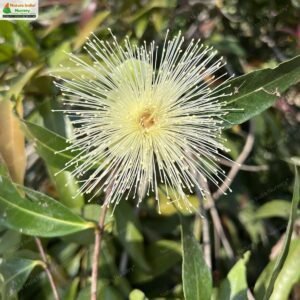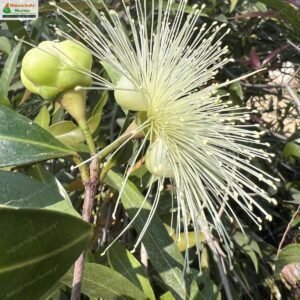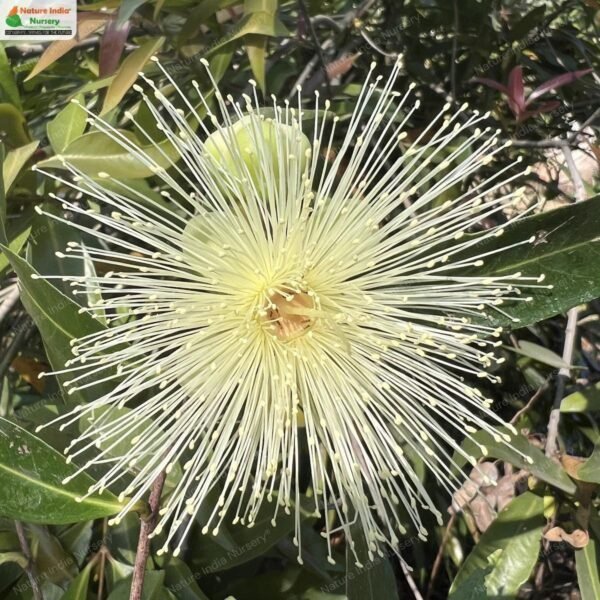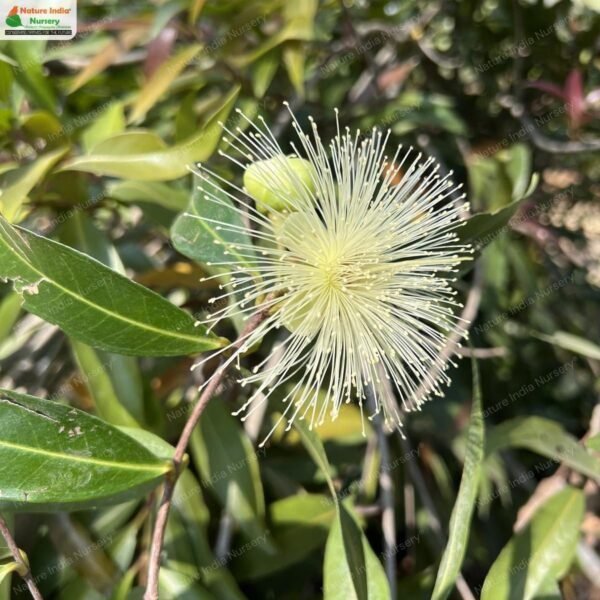Syzygium jambos, commonly known as the rose apple or Malabar plum, is a medium-sized evergreen tree with a dense, rounded crown and smooth, grayish-brown bark. The leaves are glossy, dark green, and lance-shaped with a pointed tip, while the tree produces fragrant, white to pale yellow flowers and round, yellow to pinkish-red fruits that have a crisp texture and a rose-like aroma. Native to Southeast Asia, the tree is widely cultivated in tropical and subtropical regions around the world.
The rose apple’s ecological significance extends beyond its physical characteristics, as it provides a valuable habitat and food source for various wildlife species, including birds, bats, and other animals.
Habitat
Syzygium jambos is native to Southeast Asia and is widely cultivated in tropical and subtropical regions around the world.
Planting and Care
-
Propagation: Can be propagated through seeds, cuttings, or air layering.
-
Soil: Prefers well-drained, fertile soil but can tolerate a range of soil types.
-
Watering: Requires regular watering, especially during dry periods.
-
Sunlight: Thrives in full sun to partial shade.
Additional Information
-
Economical Values: The fruits are consumed fresh or used to make jams, jellies, and beverages.
-
Traditional Medicine: Used in traditional medicine for its antidiabetic, anti-inflammatory, and antioxidant properties.
-
Ornamental: Often planted as an ornamental tree in gardens and parks for its aesthetic appeal and shade.
-
Wildlife Significance: Provides shelter and nesting sites for various birds and small animals. The fruits are consumed by birds, bats, and other wildlife. Acts as a host plant for certain insects and contributes to the biodiversity of its habitat.


















